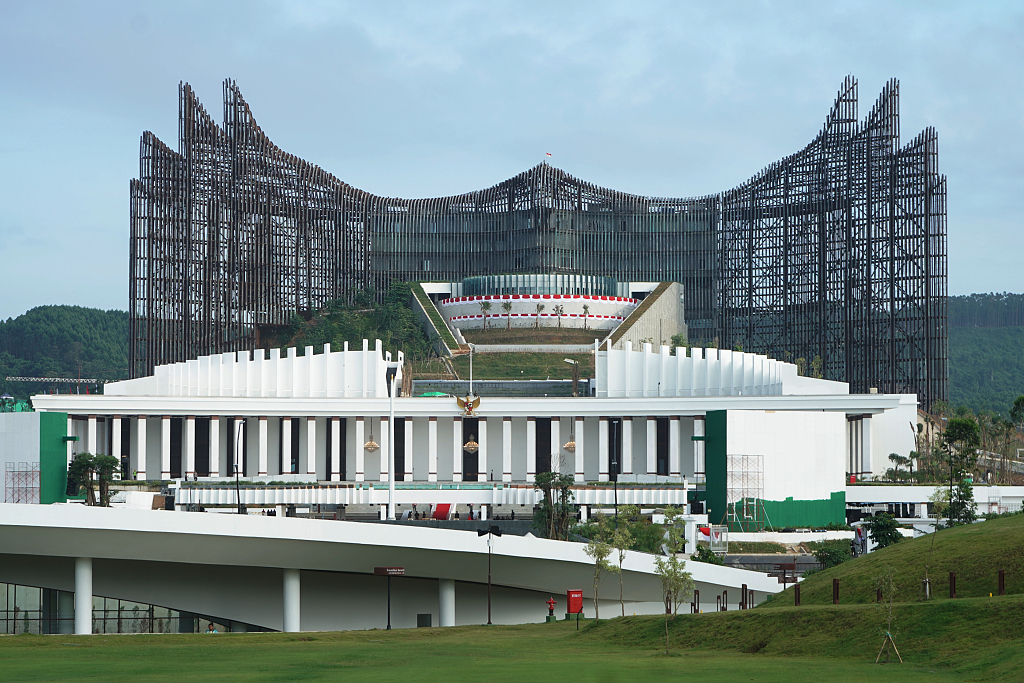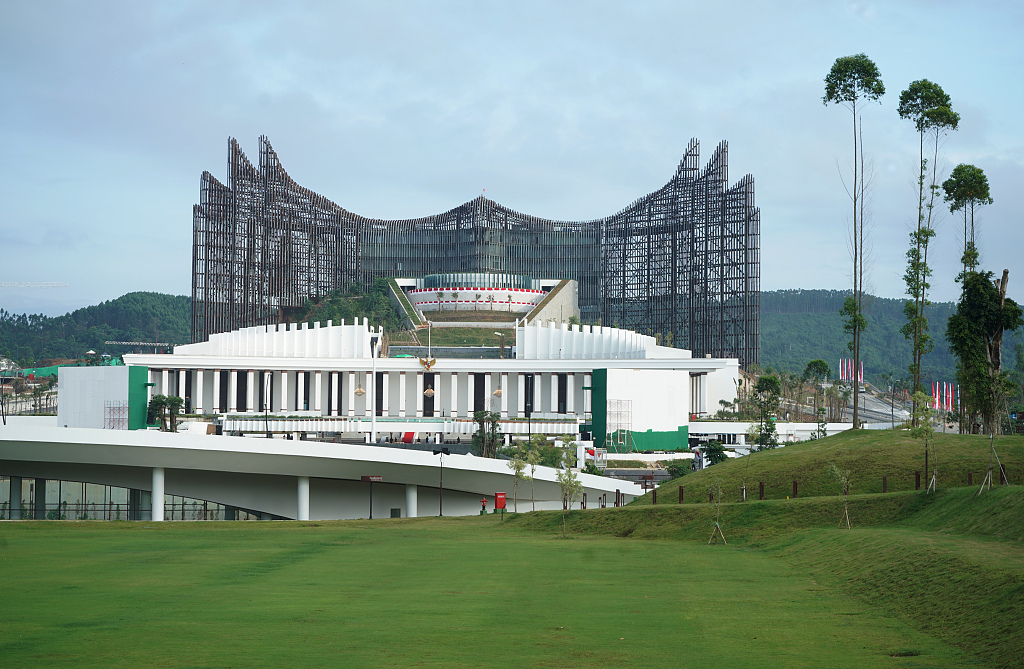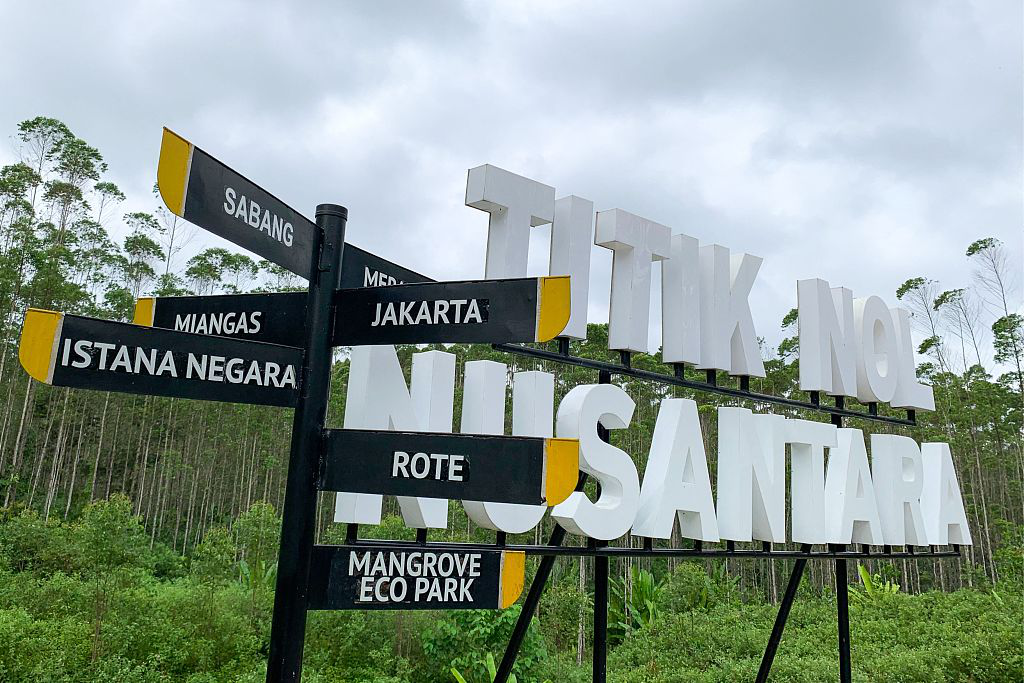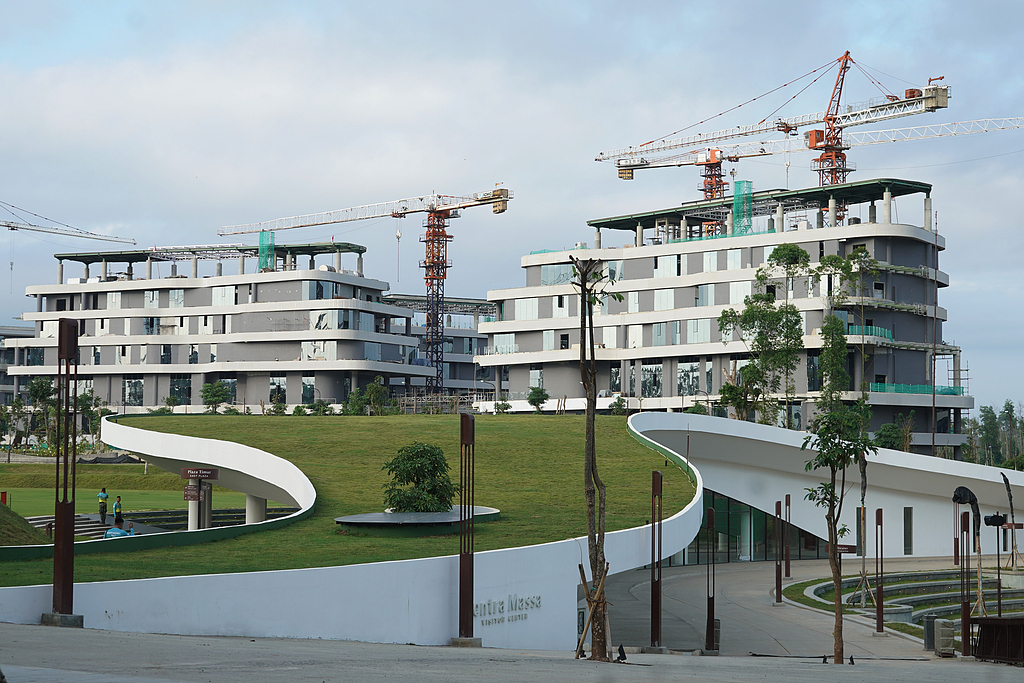
A general view of Istana Garuda during construction of Indonesia's new capital city Nusantara in Sepaku, Penajam Paser Utara District, East Kalimantan, Indonesia on August 12, 2024. | CFP Photo
As Indonesia celebrated its 79th Independence Day in the country's new capital, Nusantara, in mid-August, President Joko Widodo, along with his successor President-elect Prabowo Subianto and high-ranking officials, attended the event.
The country is currently embarking on one of its most ambitious projects: moving its capital from Jakarta to Nusantara, which is set to become the political centre of the country and a green metropolis.
Recently, GDToday had an exclusive interview with Dini Suryani, a researcher at the Centre for Political Studies at the National Research and Innovation Agency (BRIN). Miss Suryani shared her thoughts on the logic behind the move, proposed three priorities for developing the new capital, and the golden visa program for attracting foreign investment.

A general view of Istana Garuda during construction of Indonesia's new capital city Nusantara in Sepaku, Penajam Paser Utara District, East Kalimantan, Indonesia on August 12, 2024. | CFP Photo
Indonesia moves the capitol due to public concerns and the political will
The plan to build a new capital in 2019, announced by President Joko Widodo, began construction in 2022. Miss Suryani underscored public concerns and the president's political will behind the decision.
As for public concerns, domestic economic equity and the environmental burden on Jakarta stand out.
Economically, the Indonesian government aims to create a new economic center to address inequality, as Jakarta alone accounts for some 17% of the country's GDP.
"As the development has been concentrated on the Java Island, they would like to create a new economic center in the new capital," she noted.
She also pointed out the severe sinking experienced by the current capital Jakarta, as well as issues such as water crisis and severe air pollution.
Above all, the BRIN researcher on political studies noted that there are undoubtedly political motives behind it.
"I believe that one of them is President Joko Widodo's desire to leave a significant leadership legacy. That is going to be the main reason why they decided to move the capital city," she added.
Notably, Miss Suryani heeded the affected communities in the designated area as the new capital and advised that the Ibu Kota Nusantara (IKN) law, which has been passed in just 42 days, should be amended by the national government.

This picture shows directions at ground zero Nusantara, the future capital city of Indonesia, in Sepaku, Penajam Paser Utara, East Kalimantan, August 14, 2022. | CFP Photo
The authority should consider three imperatives for Nusantara's development
Given the ongoing construction of Nusantara, Miss Suryani proposed three imperatives for its development and governance.
First, the authorities, both governmental and local, should listen more to the aspirations of the indigenous and local communities who are affected by the new capital. The authorities need to seriously consider the mitigation of risks associated with the capital's relocation.
Second, the IKN law should be amended as it tends to open the floodgates of investment without adequate environmental considerations. After all, Nusantara is projected to be a green forest and a sustainable city.
Third, the IKN and Nusantara Capital City Authority (OIKN) should enforce local government and stakeholders to ensure that the Nusantara policy can attain wider public participation.

A general view from the site of the multi-story building during construction of Indonesia's new capital city Nusantara in Sepaku, Penajam Paser Utara District, East Kalimantan, Indonesia on August 12, 2024. | CFP Photo
Golden visa program can catalyse more investment into Nusantara
In late July, Indonesia launched the golden visa program. According to Miss Suryani, the move could serve as a catalyst for attracting more investment into Nusantara.
"The long-term residency incentive might make Nusantara even more attractive as an investment destination and potentially accelerate its development and the realization of ambitious goals," she added.
However, Miss Suryani also noted the possible challenges brought by the influx of foreign investment, such as increased competition for local businesses.
She reminded the government to tackle the balance between MNCs (multinational corporations) and local enterprises and local communities, in case the latter feels marginalized and tensions rise among the domestic society.
Provided that Nusantara is keen on foreign investments from different sectors at present, Miss Suryani noted growing chances for multinational enterprises in the Guangdong-Hong Kong-Macao Greater Bay Area (GBA).
Indonesian official data shows that Hong Kong SAR and the Chinese mainland ranked as the second and third foreign investors in Indonesia's foreign direct investment in the first quarter of 2024, with total investments of US$1.89 billion and US$1.87 billion, respectively.
"The multinational enterprises in the GBA are quite robust in areas that can help realize these kinds of visions, such as smart city technologies or strengthening financial infrastructure, given that Hong Kong is one of the best financial hubs worldwide," Miss Suryani noted.
Reporter: Clonde Zhang, Sophia Chen (intern)
Editor: Steven Yuan, Nina Huang, James
















